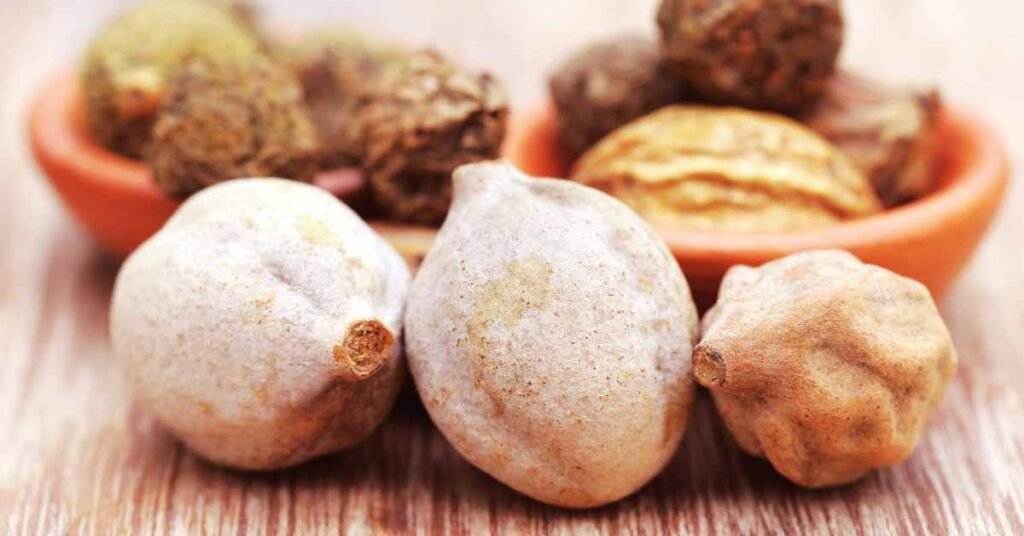In the world of herbal teas, Bibhitaki tea stands out as a hidden gem, cherished for its numerous health benefits and traditional roots in Ayurvedic medicine.
Derived from the Bibhitaki fruit, also known as Terminalia bellirica, this tea has gained popularity for its potential to promote overall well-being.
In this article, we will delve into the origins of Bibhitaki tea, its nutritional composition, and the various health benefits associated with its consumption.
Understanding Bibhitaki

Bibhitaki, a deciduous tree native to Southeast Asia, is one of the three key ingredients in the renowned Ayurvedic formula Triphala.
The fruit of Bibhitaki has been traditionally used in Ayurveda for its therapeutic properties.
With a taste that can be described as astringent and slightly bitter, Bibhitaki is known for its ability to balance all three doshas – Vata, Pitta, and Kapha – according to Ayurvedic principles.
Nutritional Composition
Bibhitaki boasts a rich nutritional profile that contributes to its health-promoting qualities.
The fruit contains bioactive compounds such as tannins, ellagic acid, gallic acid, lignans, flavonoids, and essential oils.
These components work synergistically to deliver a range of potential health benefits when consumed in the form of tea.
Health Benefits of Bibhitaki Tea
Digestive Health
Bibhitaki tea has been traditionally used to support digestive health.
The tannins present in Bibhitaki possess astringent properties that may help in toning and strengthening the digestive tract.
This can contribute to improved digestion and a reduction in common digestive issues such as bloating and indigestion.
Detoxification
Bibhitaki is revered for its detoxifying properties.
It is believed to help cleanse the liver and eliminate toxins from the body. Regular consumption of Bibhitaki tea may aid in the natural detoxification process, supporting overall liver health and promoting a clearer complexion.

Respiratory Wellness
In Ayurvedic medicine, Bibhitaki is considered beneficial for respiratory health.
The anti-inflammatory and antimicrobial properties of the fruit may help alleviate respiratory issues, making Bibhitaki tea a potential remedy for conditions like asthma, bronchitis, and coughs.
Antioxidant Action
Bibhitaki is a rich source of antioxidants, which play a crucial role in neutralizing free radicals in the body.
Free radicals are unstable molecules that can cause cellular damage and contribute to aging and various diseases.
Regular consumption of Bibhitaki tea may help combat oxidative stress, promoting overall health and longevity.
Weight Management
For those on a weight management journey, Bibhitaki tea may offer support.
The astringent properties of Bibhitaki may aid in reducing excess water weight, while its potential to enhance digestion can contribute to a more efficient metabolism.
Additionally, the tea’s ability to support liver function may play a role in maintaining a healthy weight.
Blood Sugar Regulation
Some studies suggest that Bibhitaki may have a positive impact on blood sugar levels.
The active compounds in Bibhitaki may help regulate insulin sensitivity, making it a potential ally for individuals dealing with diabetes or those at risk of developing the condition.

However, it’s essential to consult with a healthcare professional before incorporating Bibhitaki tea into a diabetes management plan.
Heart Health
The antioxidant and anti-inflammatory properties of Bibhitaki may contribute to cardiovascular health.
By reducing oxidative stress and inflammation, Bibhitaki tea may help support a healthy heart and reduce the risk of cardiovascular diseases.
However, it’s crucial to complement tea consumption with a heart-healthy lifestyle, including a balanced diet and regular exercise.
How to Prepare Bibhitaki Tea
Making Bibhitaki tea is a simple process that requires dried Bibhitaki fruit, hot water, and optional sweeteners or flavorings. Here’s a basic recipe to get you started:
Ingredients:
- 1 teaspoon of dried Bibhitaki fruit
- 1 cup of hot water
- Honey or lemon (optional, for flavor)
Instructions:
- Place the dried Bibhitaki fruit in a teapot or infuser.
- Pour hot water over the Bibhitaki.
- Allow the tea to steep for 5-10 minutes, depending on your desired strength.
- Strain the tea to remove the Bibhitaki pieces.
- Add honey or lemon if desired.
- Enjoy your Bibhitaki tea!
Final Word

Bibhitaki tea, with its ancient roots in Ayurvedic medicine, has emerged as a holistic and natural elixir for overall wellness.
From digestive health to respiratory wellness, and from antioxidant action to weight management, the potential benefits of Bibhitaki tea are diverse and promising.
As with any herbal remedy, it’s essential to consult with a healthcare professional before incorporating Bibhitaki tea into your routine, especially if you have pre-existing health conditions or are taking medications.
Embrace the ancient wisdom of Ayurveda and explore the potential of Bibhitaki tea as a soothing and health-promoting beverage in your daily life.
MEDICAL DISCLAIMER
Itsnevernotteatime.com cannot and does not contain medical/health advice. The medical/health information is provided for general and educational purposes only and is not a substitute for professional advice.




